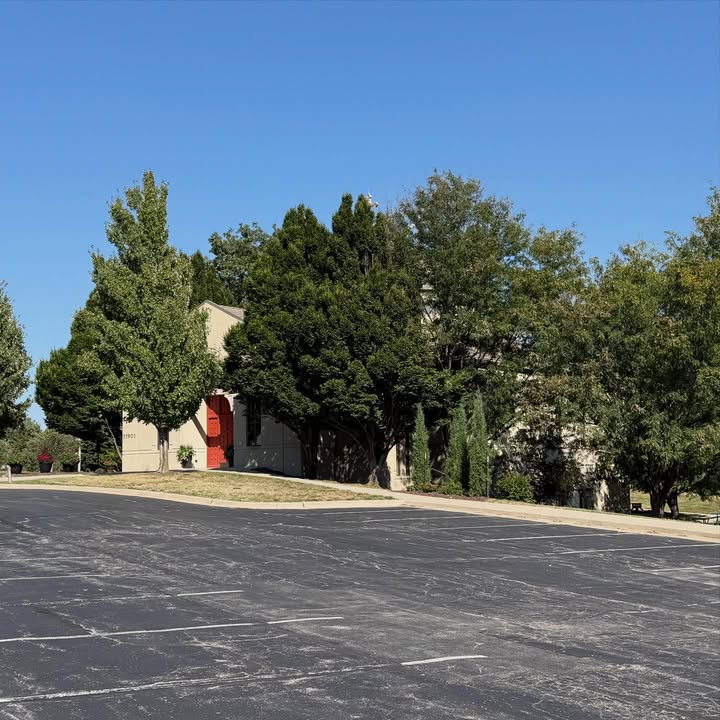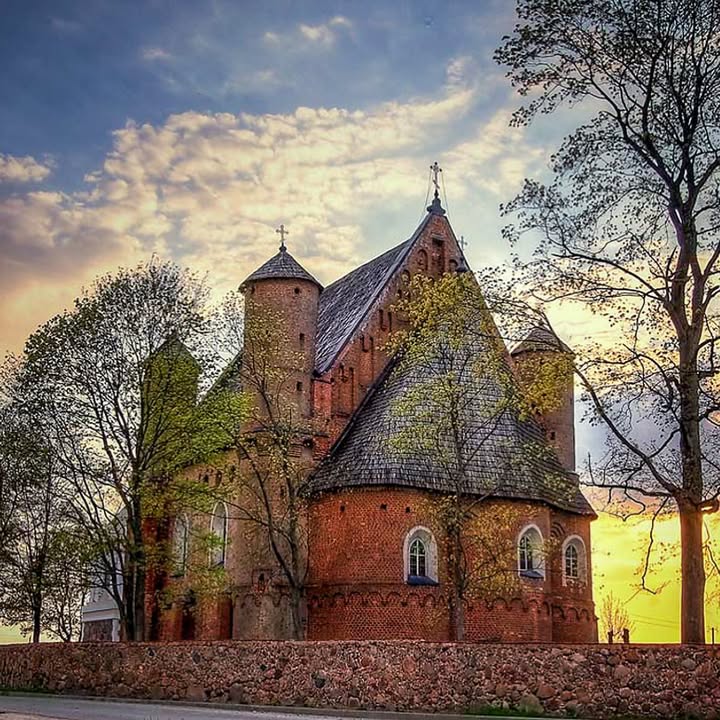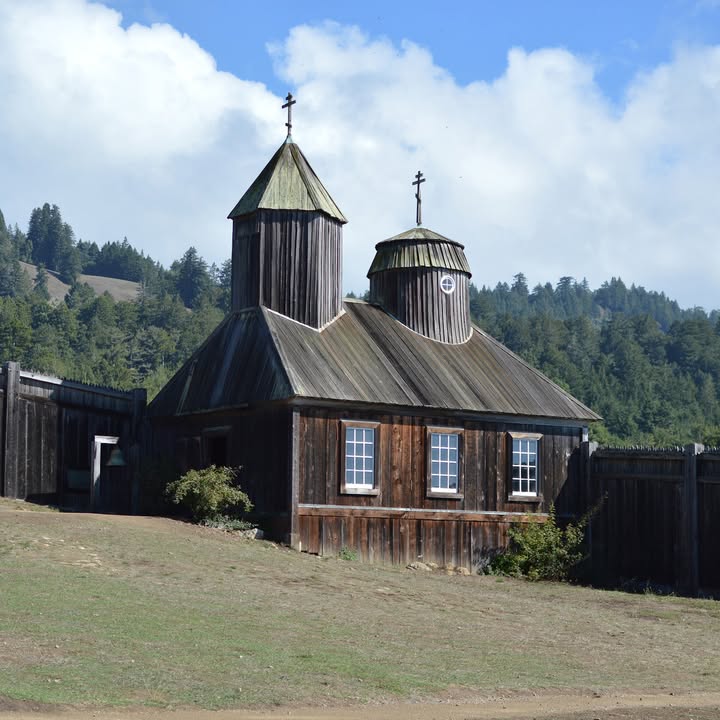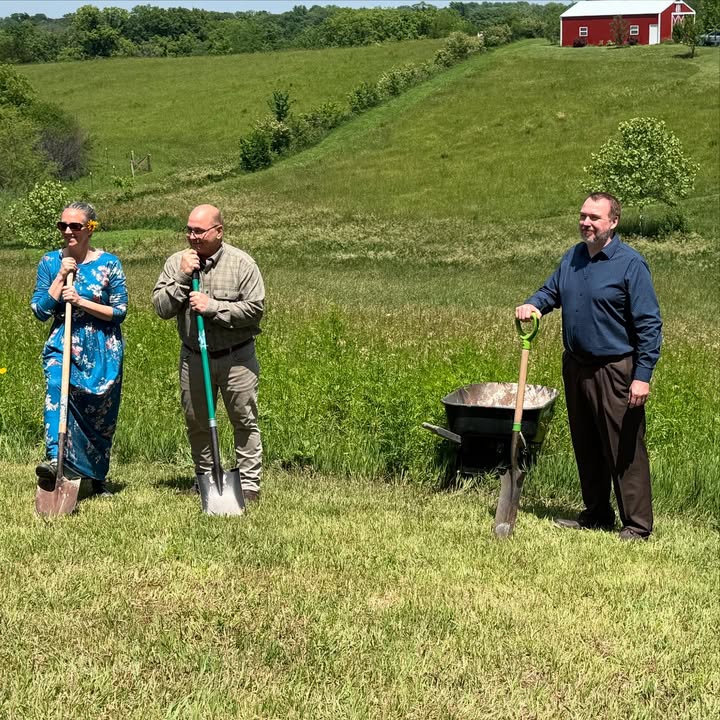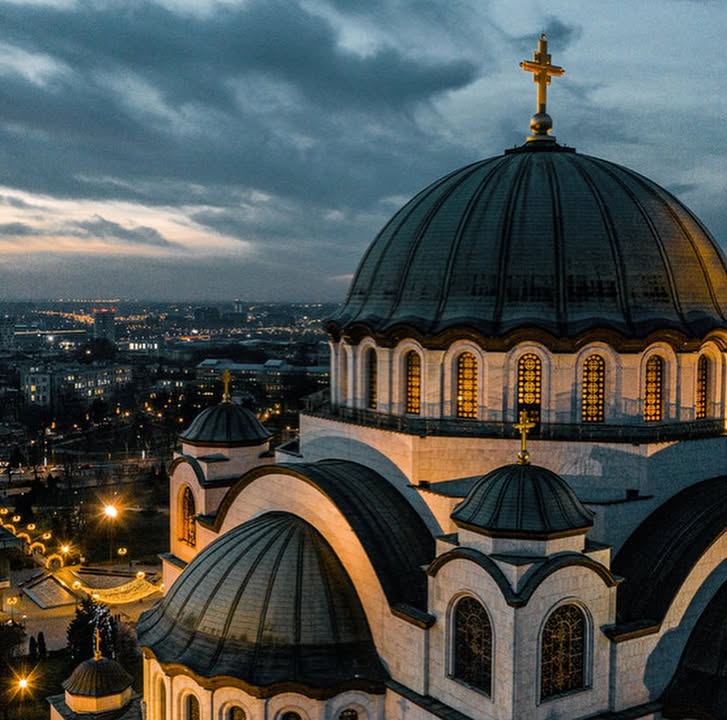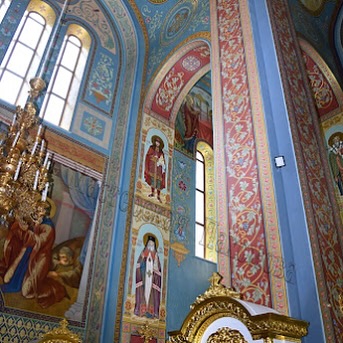A doctor buries mistakes, an architect plants ivy. That old…
A doctor buries mistakes, an architect plants ivy.
That old student joke came rushing back to me today with almost cruel clarity. After spending the day in Kansas City walking a potential site for a new Orthodox church design, I stopped by Holy Trinity Church in Overland Park, KS. I wanted to study the “competition,” to let the image of another sacred space help shape the concept of my own.
But what I found was nothing short of tragic. Built in 2002, the church is wrapped so tightly in trees that not a single clean view of the building exists. Every façade, every proportion, every attempt to read its architectural language is suffocated. I circled the property again and again, but the structure remained hidden behind its own green prison. The overall spatial impression—the essence of sacred architecture—was simply impossible to grasp.
As I pushed between branches to glimpse a fragment here and there, I realized why it had been done: because the building itself was disappointing. And perhaps the architect, whose name I could not even find, preferred to let nature do the covering.
Inside, I’m told, the story is different. The church holds luminous Novgorod-style iconography by Fr. Theodore Koufos, with twelve new icons added in 2016. Sadly, I never saw them, turned away at the door with the familiar line, “And who are you?” A bitter ending, yet one that underscores how much responsibility rests on the shoulders of a professional church architect. Sacred architecture should never hide—it should proclaim.
— Aleksandr Molodin
#orthodoxchurchdesign #traditionalchurcharchitecture #sacredarchitecture #architecturalservices #customchurchdesign #professionalchurcharchitect #molodin #aleksandrmolodin #molodinarchitrct
